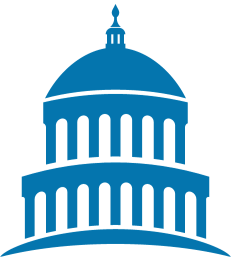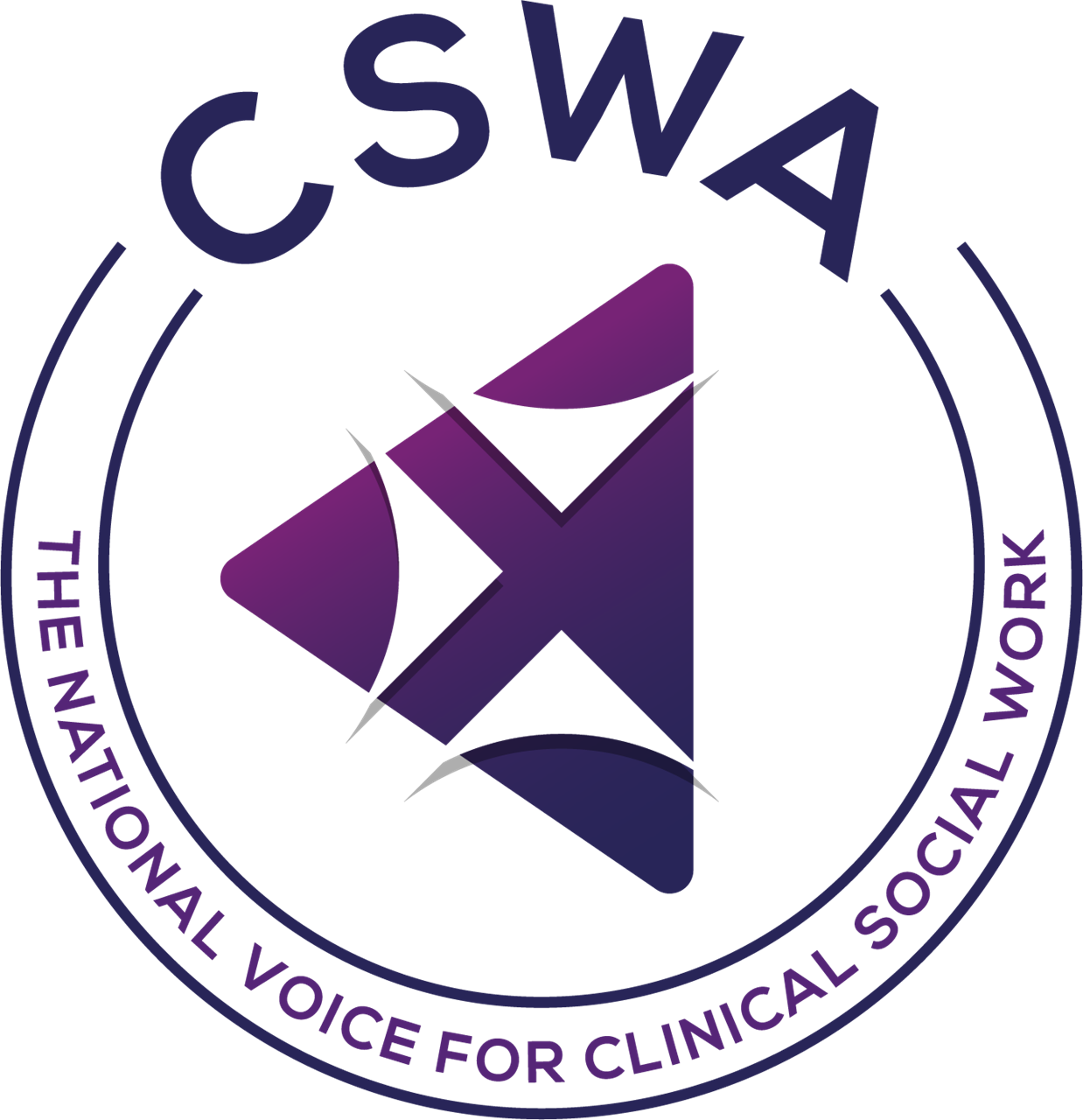Advocacy Priorities
2026 Advocacy Priorities for CSWA * = Major

The Clinical Social Work Association Mission guides our advocacy. Every year the Government Relations Committee evaluates what issues are most important and whether there is a vehicle to pass them in Congress. CSWA also consults with affiliated state societies about issues that are important in their state/jurisdiction.
During 2026, our national advocacy priorities, in order of importance, are:
1. *Social Work Compact – CSWA is a permanent ex officio member of the Social Work Commission (with 32 delegates from member states) which should be setting up the Social Work Compact in the next 12 months.
2. *Change in Social Work Degrees by Department of Education – The Department of Education has decided to change the MSW degree from a “professional” degree to a “graduate” degree, which will seriously limit the amount of Federal money that can be borrowed to fund our degrees. CSWA will be working with NASW and the other 10 professions that have been ‘downgraded’ to prevent this limitation.
3. *Use of AI in Mental Health Treatment – The increasing use of AI bots to provide mental health assistance has led to damage for some who have engaged in using these methods. CSWA is working to put limits on the use of AI for psychotherapy, as several states have done already.
4. *Pass Legislation to Implement Mental Health Parity Enforcement – CSWA hopes the long overdue enforcement of mental health parity through Congressional action will be passed this year. We also support adopting reimbursement based on the procedure code rather than the mental health professional who delivers the services. We are creating a statement on this issue for the public.
5. *Medicare – Stop the once a year or at first session in-person requirement as is currently mandated by CMS.
6. *Stop Companies from Stealing LCSW Information – The companies who have started “scraping” the names and information of Clinical Social Workers has increased exponentially, making it appear that LCSWs listed work for and/or with the company listing this information. CSWA has been working with PsiAN on a petition to stop 7 Cups from stealing LCSW information (over 1000 signed so far) and to stop any other company that does this to get permission from a member before listing them.
7. *Keep 2024 Mental Health Parity Rules in Place – The current Administration has put the excellent parity rules from the Biden administration on hold and is in no hurry to pass them. CSWA is working to get them passed.
8. *Voting Rights – The protection of voting rights is a major part of mental health. CSWA has been a strong advocate for District of Columbia statehood and expands that position to prevent the attempts to restrict voting rights in all states.
9. *Talk with CSWE – Work on developing a relationship with CSWE around clinical curricula in social work and set regular meetings to discuss.
10. Save ACA Health Care – Work with Congress to have bi-partisan support for those who use the Affordable Care Act.
11. Immigrants – CSWA will continue to work with the Mental Health Liaison Group to stop the cruel policies separating families that were implemented in the past.
12. Continue to Improve Parity of ASWB Clinical Test Results – CSWA will continue to discuss with ASWB the ways to improve test results for BIPOC, older, and ESL, clinical social workers. The 2022 data showed a huge difference between pass rates of white clinical social workers and these other groups of clinical social workers.
13. Reinstate the Affordable Care Act – Now that this Administration has rescinded the subsidies which allowed 22 million citizens to get health insurance, CSWA will work with MHLG and other groups to get them reinstated.
14. Social Determinants of Health – CSWA will work to integrate social issues which contribute to mental health and substance use problems into services covered by LCSWs through Medicare, Medicaid, CHIP, and commercial insurers. The issues include services related to basic needs like food, shelter, transportation, and special services needed for patients with cognition problems, mental health issues, physical handicaps, and financial difficulties.
15. Privileging of Medication over Psychotherapy – Over the past 30 years, psychotropic medication has become the primary treatment for emotional distress, recommended by primary care physicians and insurers. Building bridges with PCPs and making psychotherapy a fundamental part of the way that emotional disorders are treated is a major goal.
Contact: Laura Groshong, LICSW, Director of Policy and Practice, lwgroshong@clinicalsocialworkassociation.org
